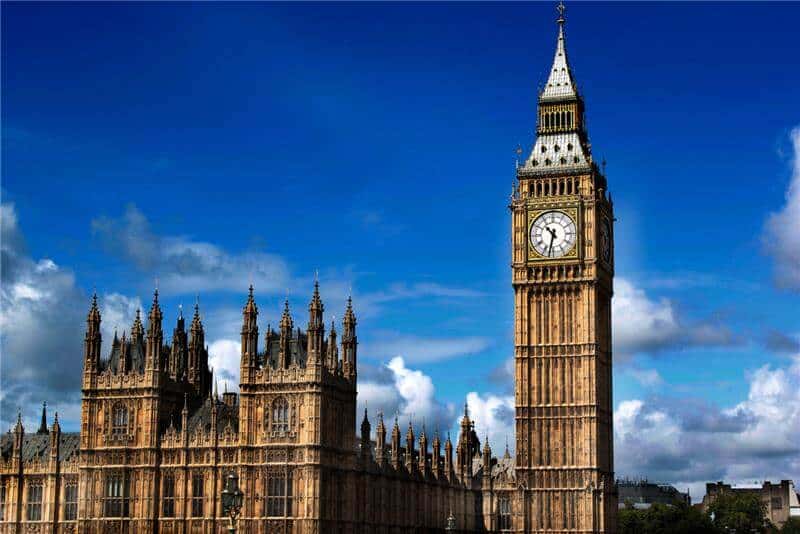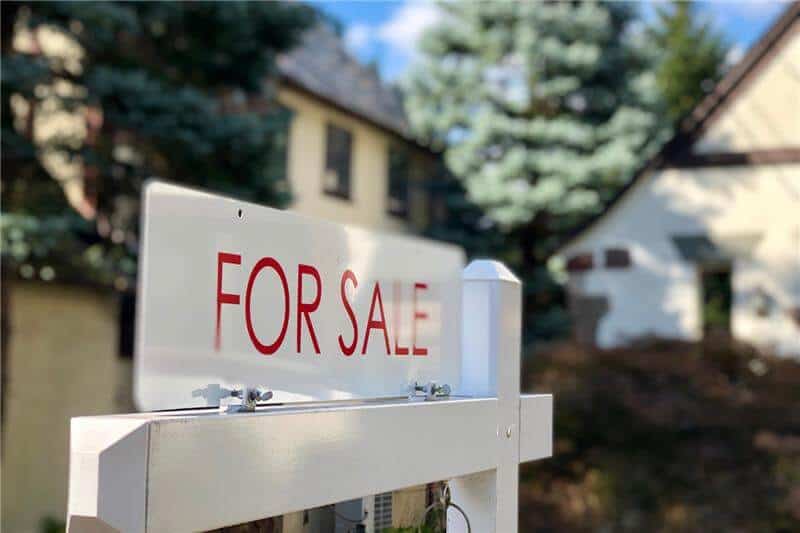House prices have been dramatically rising in recent years, with increases of up to 53% since 2010. The housing market hit record highs in 2022 – but during November and December 2022, house prices began falling – could this be a sign of an impending UK housing market crash?
Table of Contents
Toggle
House prices have been steadily rising faster than wages have increased, making houses less affordable than ever. In 1997, property prices were 3.5 times the average UK salary – now they are 9.1 times the average salary.
Following the advent of the pandemic in March 2020, the housing market froze somewhat as the government urged people not to move house, go on house viewings or invite viewers to their own house, in order to curb the spread of COVID-19. In addition, the amount of approved mortgages fell dramatically in April – May 2020 due to bank employees being on furlough and a reduction in the range of products being made available by banks. As lockdown rules became more relaxed later on in 2020, the market began to recover, and house sales in October 2020 actually exceeded those of October 2019.
COVID-19 did change housing buying habits though – people were less likely to buy property in cities and many moved to rural areas in the wake of the pandemic. The demand for city based apartments dropped whereas demand for detached and terraced houses rose. This is likely due to the rise in working from home, much of which has continued post-lockdown as companies found unexpected benefits from a home-based workforce, and a desire for more outdoor and indoor space.

In March 2021, the government’s Stamp Duty Holiday (a tax on properties sold for more than £250,000) was set to end, although it was extended to July 2021 instead. The original end to this ‘holiday’ and the actual end both caused inflation in house prices.
In March 2022, Putin’s invasion of Ukraine again led to instability in the market and many feared a collapse. The Bank of England also increased the interest rate significantly to 2.25% in September 2022 and it currently sits at 3.5%. The mini budget proposed in September 2022 by the conservative government made waves which continue to rock the housing market and overall economy, despite many policies in said budget being quickly reversed following criticism from economists. Mortgage rates also jumped to over 6% following the mini-budget announcement. This and other factors led to the overall increase in prices of food, gas, and electricity, contributing to what we now call the cost of living crisis.
Much like at the beginning of the pandemic, banks have been removing their best mortgage deals so less people can afford to purchase houses, with the amount of fixed-rate deals dropping by 70%. Average fixed-rate mortgages are now 5.8%, compared to 2.4% just this time last year.
All of these events are leading up to a potential property crash in the UK market.

The average home in Britain cost £285,579 in November, compared to £292,406 as recently as October, a drop of £6,800. According to Rightmove’s House Price Index, average property prices fell by 2.1% in December 2022. While the holiday season usually brings a slight reduction, this is more than would usually be expected for the time of year. Prices are still higher than the same time last year, but have not increased as much as expected. Sellers have been reducing prices in an attempt to attract hesitant buyers – but given the current unforgiving mortgage rates, inflation, and the high cost of living, modest price reductions may not be enough. Many potential home buyers are holding off purchasing a house in anticipation of a further reduction in house prices and better mortgage deals.

Current predictions for the UK housing market vary wildly, with the government’s own Office of Budget Responsibility (OBR) predicting that house prices will fall by 9% between now and September 2024. Others have forecasted price reductions coming in anywhere between 1% and 20%, but most seem unified on one thing – house prices will go down in 2023. But does this signify a house price crash?
Banks, estate agents, and property portals like Zoopla are all weighing in – here’s what they have to say.

Halifax’s house price index also reveals a drop in house prices in late 2022, and they predict prices to drop by 8% in 2023. Their regional price index does however show that some locations seem to be resistant to the price drop, with house prices in the North East remaining constant throughout November.
Nationwide Building Society predicts a 5% drop in housing prices, although they anticipate a ‘soft landing’ rather than a housing market crash as the economy stabilises after an uncertain few years.
HSBC have forecasted an even more modest price drop of 3% in 2023 and just 1% in 2024, but do warn that rising interest rates could lead to some home owners being forced to sell their houses, particularly in the case of buy-to-let investments.

Property agents Savills predict an average house price drop of 10% in 2023, with some variation depending on the location within the UK – London prices are predicted to drop by as much as 12%. Their 5 year forecast does however anticipate house prices beginning to rise again as soon as 2024.
Jones Lang LaSalle also predicted a 6% drop in house prices in 2023, but also pointed out that housing market crashes are rare, with the last one coinciding with the 2008 recession.

Rightmove predicted a modest decrease of 2% in house prices, pointing out that basic supply and demand has been the driver of increased house prices up until now. When there are more buyers than sellers, house prices are always going to rise – now that the tables are turning, it’s only natural to see a drop in price. In fact, Rightmove’s current House Price Index indicates that house prices have already risen 0.9% since the beginning of 2023, despite still being much lower than in October.
Zoopla warns of a drop in house prices despite them continually rising throughout 2022, as house price inflation slows. They reported growth rates in the last quarter of 2022 of just 0.7%, the lowest since February 2020. According to the Zoopla House Price Index, 1 in 4 sellers have reduced their asking price since September 2022. Zoopla also predicts that mortgage rates will stabilise at between 4.5% and 5% mid-2023, and that the market will balance out after the unprecedented events of the last 3 years.


Richard Donnell, executive director at Zoopla, said: “We expect buyers to return to the market in the New Year, but they will be far more cautious and price sensitive. Serious sellers need to be realistic on price and get the advice of an agent on how to market their home.”
The laws of physics state that every action has an equal and opposite reaction, i.e. what goes up must come down, and this is equally true of the housing market following the ‘buyer’s frenzy’ of 2022. If prices rise too much, buyers will be put off, especially in conjunction with uncertainty in the economy, wages not increasing to match inflation, and the ongoing cost of living crisis. If the market stagnates, then sellers will have little choice but to reduce house prices and banks will have to offer lower mortgage rates to tempt buyers back. But when will house prices drop? Every prediction points to house prices going down in 2023, it’s hard to say at this point when exactly this reduction will reach its zenith, or whether this would constitute a ‘crash’, and longer term forecasts indicate the housing market may begin to recover as soon as 2024.
We hope you found this overview on the UK housing market crash helpful.
For more property insights, investment tips and strategies, be sure to check out our FREE property events!
https://www.nationalpropertybuyers.co.uk/how-coronavirus-covid-19-affected-uk-house-prices/
https://en.wikipedia.org/wiki/September_2022_United_Kingdom_mini-budget
https://24housing.co.uk/where-have-house-prices-changed-most-in-the-last-ten-years/#
https://www.nimblefins.co.uk/hsbc-warns-mass-forced-sale-homes-price-drops
https://www.savills.co.uk/insight-and-opinion/research-consultancy/residential-market-forecasts.aspx
https://www.rightmove.co.uk/press-centre/house-price-index/december-2022/
https://www.rightmove.co.uk/news/articles/property-news/house-price-forecast-2023
You May Also Be Interested In...

A Guide to Selling Your Buy-To-Let Property
Thinking of selling your buy-to-let? Learn how to time the market, manage tax and maximise

Planning Permission Loopholes You Should Know About
Discover UK planning permission loopholes, permitted development rights and when you can extend, convert or
Featured Property Investment Events & Courses
The Property Deal Packaging Summit
The Property Millionaire Bootcamp
The Serviced Accommodation Bootcamp
Assets For Life LTD is a company incorporated in England and Wales with registered number 09935286 and registered offices at Assets for Life Ltd, Suite 105, Waterhouse Business Centre, 2 Cromar Way, Chelmsford, Essex, England, CM1 2QE, United Kingdom.
Assets For Life LTD is registered with the Information Commissioner’s Office, with registration number ZA280607
COPYRIGHT © 2024 ASSETS FOR LIFE, ALL RIGHTS RESERVED. WEBSITE BY AMPLIFY MARKETING